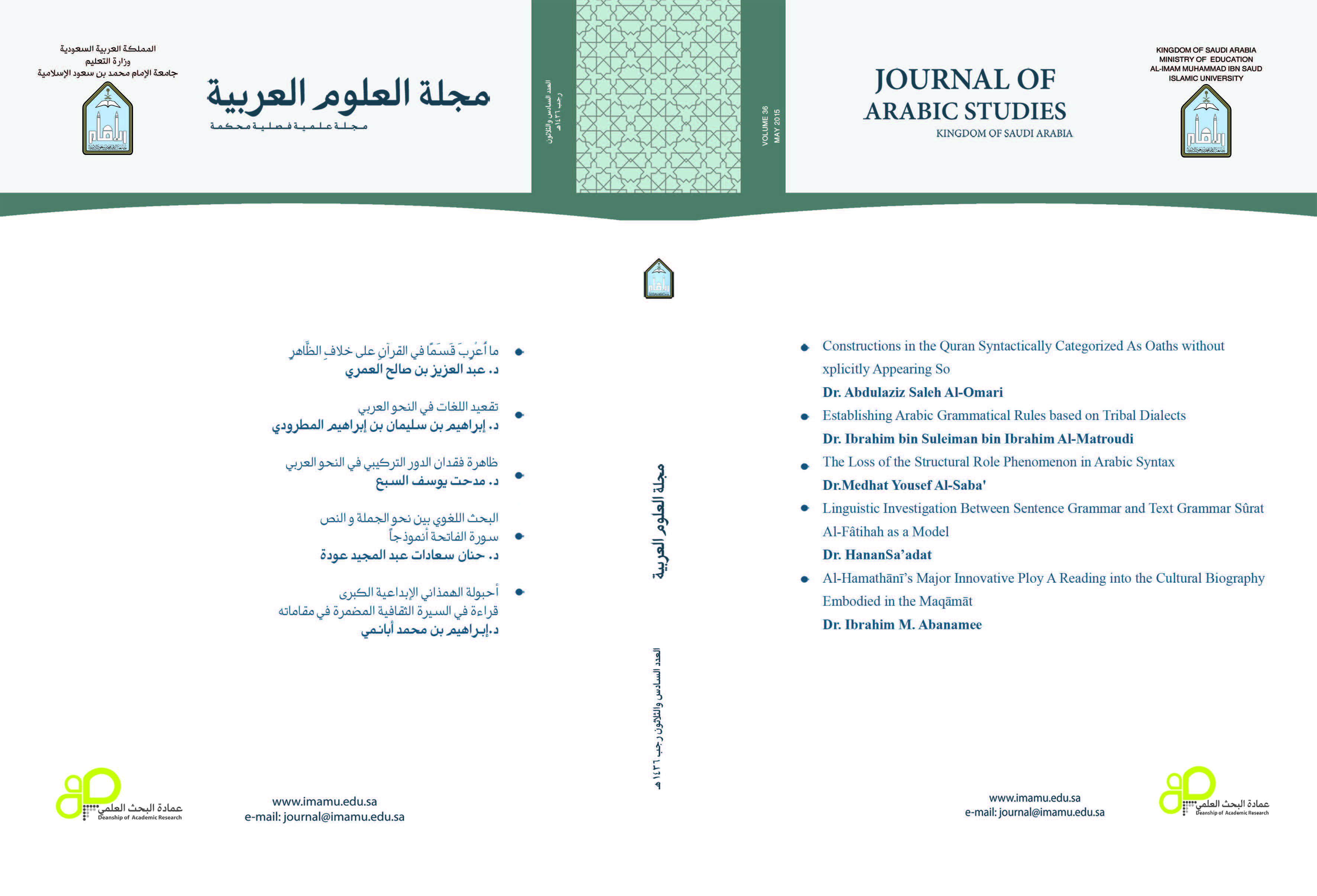أحبولة الهمذاني الإبداعية الكبرى قراءة في السيرة الثقافية المضمرة في مقاماته
الملخص
تروي عامة مقامات الهمذاني حكاية كديةٍ أو خديعةٍ يفوز فيها البطل (أبو الفتح الإسكندري) بجائزة يقتنصها من الجمهور أو الراوي، فهل تشكّل تلك المقامات -مجموعةً- أحبولةً واحدةً مترابطةً كبرى فاز بها الهمذانيُّ نفسُه بجائزة سعى خلفها، وجَدَّ في السعي؟
وهل ثمّة رابطة بين بطل المقامات أبي الفتح ومنشئه الهمذاني؟
وهل يمكن أن تُقرأ المقامات بصفتها نصاً واحداً متنامياً يستطيع الناقد أن يبصر تطوّره التاريخي، وانزياحاته الداخلية؟ وإذا كان ذلك كذلك فما الدلالات التي يمكن أن تنتجها هذه القراءة؟
وهل نشأت المقامات نتيجةً لابتعاد المبدع عن بلاط المانح أم نتيجة لسعي المبدع إلى الوصول إليه؟ وهل نجاحه في الوصول سيقوّي (المقامات/الإبداع) أم يضعفها؟ وهل تشكّل الثقافة العريضة التي يحصّلها الأديب (سلطةً ثقافية) مؤثرة على الإبداع وآليات إنشائه ومقامات تلقّيه، وهل يُتَصوّر أن تتمالأ تلك (السلطة الثقافية) مع (ثقافة السلطة) ضد انعتاق الأديب والأدب، وأن تقتصّا معاً أطراف الإبداع؟ .
هذه الافتراضات والأسئلة وغيرها سعيت إلى الاستعانة بها للإجابة عنها ! في قراءةٍ إن لم تكن موفّقة إلى الصواب فأرجو أن تكون مفتّقة لقراءات أخرى.




